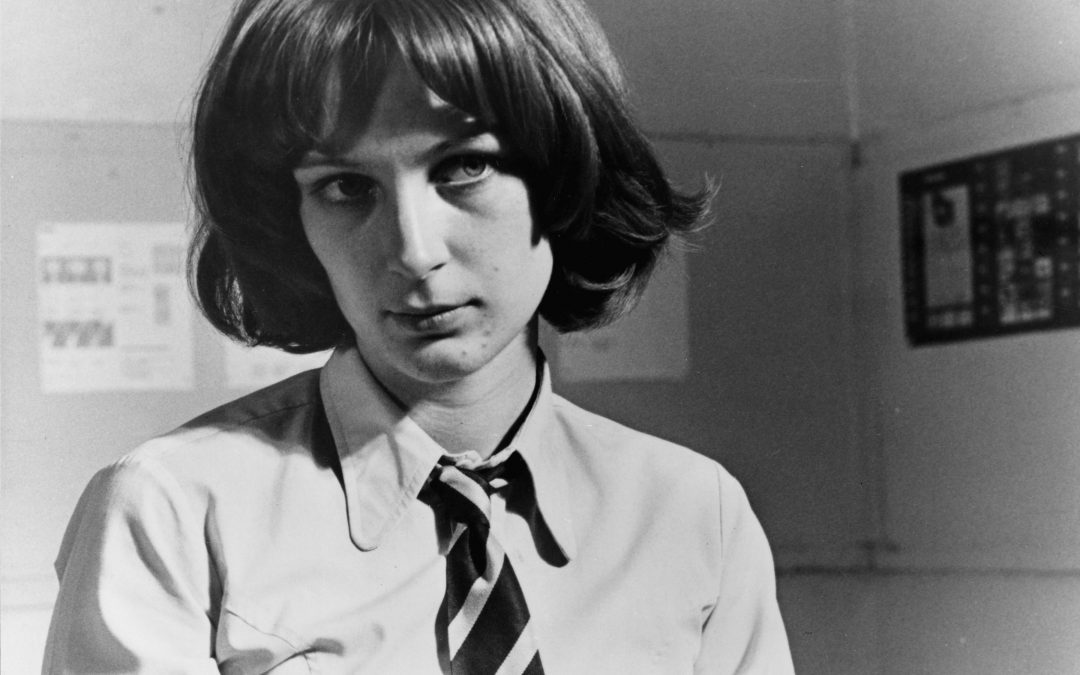In This Section
- Home
- About Us
- Study with Us
- FMT Doctoral Studies
- Research
- CARPE
- Collaborations
- EDI
- People
- Film
- Music
- Theatre
Blog. 'Maeve' by Arts Council/UCC film artist in residence, Pat Murphy. Film Coverage and Q&A.

On Thursday evening, I saw Maeve as part of the Cork film festival. This 1981 film was made by Pat Murphy,...
the Arts Council/UCC film artist in residence for our Film and Screen Media department. The screening was packed with people, including one of my classmates and several of my professors, while the film was introduced by the head of UCC’s Film and Screen Media department, Dr. Ciara Chambers.
In her introduction, Dr. Chambers called Maeve “a landmark film in Irish filmmaking” and cited Murphy’s films on the whole as groundbreaking, beautiful, provocative, and challenging. She also noted that the film asks important questions not only about politics, but “about the way we look at women’s bodies.” Finally, Ciara thanked Pat Murphy for “injecting creativity into the department” and emphasized the importance of events such as this one, which give audiences an opportunity to view and seriously discuss Irish art. Vanessa Gildea, from Women in Film and Television Ireland (https://wft.ie), led the post-film discussion, and called Pat Murphy “a real film hero.”
The film itself was inspiring and certainly a departure from the typical cinematic portrayal of women. Nudity, for instance, is artfully portrayed so as to draw attention the emotional intimacy rather than the sexual spectacle of the characters. Feminism is also directly addressed during the film, with Maeve’s strong socio-political sensibilities and quotes such as, “The time when women were spectators is long gone.” Maeve subtly communicates Belfast’s highly politicized atmosphere during the Troubles by using all of the symbols we’re familiar with--marches, violence, bomb threats, graffiti, and military presence--but goes a step further by intimately conveying what that environment is like for women. Maeve, her sister, and the other women in the film are constantly subjected to physical and psychological violence by men--both those in their lives, and those who occupy their streets.
During the discussion, Pat Murphy directly addressed Maeve’s feminist aspects, citing Laura Mulvey’s groundbreaking essay, “Visual Pleasure and Narrative Cinema,” as a primary source of inspiration. She also talked about her conscious decision to place Maeve, her sister, and her mother at the center of the narrative, and her depiction of the mother as a woman whose voice is constantly drowned out by that of her husband.
Cinematically, Murphy said that she was influenced by figures such as Jean-luc Godard, Bertolt Brecht, and Roman Polanski, pointing out that several images in Maeve are “quotes of his work” in films such as Chinatown (1974). Regarding feminist filmmakers, Murphy discussed artists such as Alice Guy Blaché and Maya Deren, noting that her inspiration came not so much from the films that they made, but the energy that they brought to their art and the fact that there were women making films in the first place.
Because of Maeve’s political implications and timing, Murphy also addressed a great deal of controversy in making and releasing the film. While writing the script of the film, the Troubles in Northern Ireland had inspired a number of biased documentaries by BBC as well as by oppositional groups within Northern Ireland. However, Murphy and her co-producers--Robert Smith and John Davies--felt it was necessary to promulgate a story that could “unpack the events in Northern Ireland” through fiction in order to communicate an emotional truth that the documentaries could not capture. However, the film was released after the 2nd republican hunger strike and the death of Bobby Sands, placing it amid a storm of political upheaval. In fact, Maeve opened the 1981 Edinburgh film festival, after which an interview regarding the film was cancelled because of the controversy surrounding the Troubles.
Finally, Pat Murphy closed off the Q&A by expressing hope in the future of gender equality and female storytellers, particularly in light of the Me Too movement’s power. In addition, she noted that Maeve’s Irish premiere took place at the 1981 Cork International Film Festival, where it won the Best Irish Film Award. To great applause, she said she was “amazed to be invited back,” and I think everyone in the audience left with a sense of both Murphy’s talent and the film festival’s progressive reputation.
